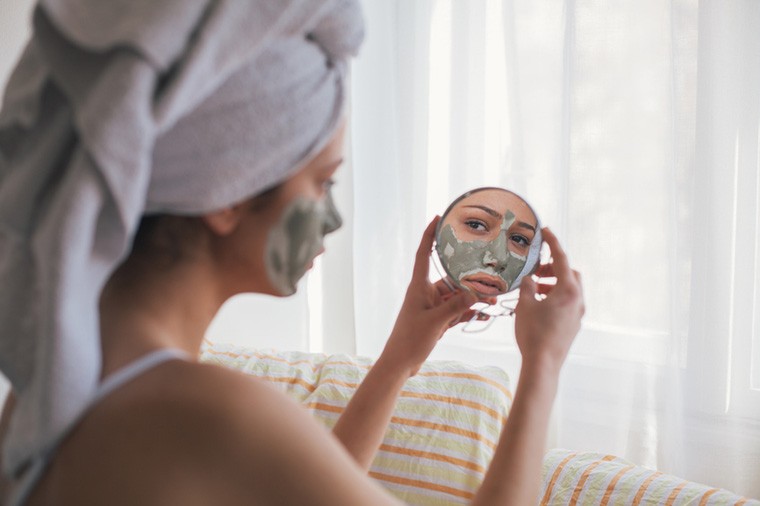Could the Cause of Your Breakouts Be Written in Your Genes?
Sometimes you can blame a blemish on a bad habit, like picking at your face or sleeping in your makeup. (Hey, even the best of us slip up sometimes.) But what if you're following all the good-skin rules and you're still struggling with adult acne?
According to one commonly held theory, there may be a reason why some women are more prone to pimples than others, and it's something that's impossible to alter—genetics.
There's no such thing as an "acne gene." But there are other elements of your hereditary makeup that could be putting you at risk for zits.
Okay, to be clear, there's no such thing as an "acne gene." But there are other elements of your hereditary makeup that could be putting you at risk for zits. "You can have a predisposition to the development of cysts, a genetic disruption in your immune system, excess androgen, or excess sensitivity to androgen that exposes you to acne," says Arielle Nagler, MD, and associate professor in the Ronald O. Perelman Department of Dermatology at NYU Langone. "Lots of different triggers can contribute [to acne], so genetic components do play some sort of role."
However, that's not to say that your DNA fully dictates the clarity of your complexion. Doctors agree that other factors influence how your genes express themselves—and, thankfully, they're all things you can control.
Keep reading to get the lowdown from three skin experts on the link between acne and genetics.

Nature vs. nurture
So how do you know whether your skin problems are rooted in your genes? First of all, don't automatically assume that just because your siblings fought over the Clearasil as teenagers, that's the main reason why you're still struggling with breakouts today. "I often see patients with a long family history of severe acne," says Dr. Nagler. "But that in and of itself isn't enough to develop it."
Other skin gurus agree. "Yes, acne is genetic—to a point," says Evelyn Chen, biomedical engineer and founder of Nerd Skincare. "Genes play an important role in determining sebum production level and how skin responds to hormonal changes, stress, and other internal factors." However, she points out that environment still impacts the formation of pimples, along with their frequency and severity.

{{post.sponsorText}}
What does science say? There is some evidence of a genetic link: A small study that compared both identical and fraternal twins found that a whopping 81 percent of their acne development came from genetics—and that the identical twins even produced the same amount of sebum—some of them experienced gnarlier breakouts because of their lifestyle choices. (More on that in a minute.)
The takeaway: Yes, genes play a large role when it comes to breakouts, but they're not the end-all, be-all of your complexion woes.

How to reduce acne if it runs in your family
Luckily, there are ways to help offset the effects of genetics and keep breakouts at bay—and you're probably doing some of them already.
"Even if you are genetically predisposed to acne, it doesn’t mean you can’t influence the degree to which it affects you by making informed, healthy choices in your lifestyle," says Sarah Villafranco, MD, founder and CEO of Osmia Organics skin care. "If you eat an anti-inflammatory diet, have healthy stress management techniques, and try not to touch your face all day long, you may keep yourself under the threshold for expressing that genetic predisposition."
So while bloodlines may be powerful, the choices you make play a much bigger role in your skin's fate. Okay, Mom and Dad—you're officially off the hook.
Your genes don't just affect your skin—here's how they impact your workout performance, your coffee tolerance, and your metabolism.
Loading More Posts...